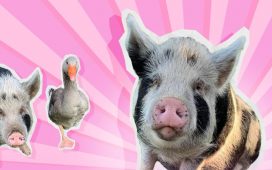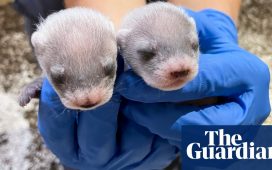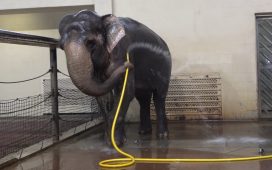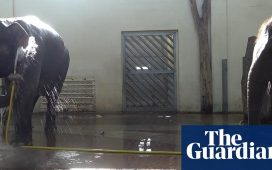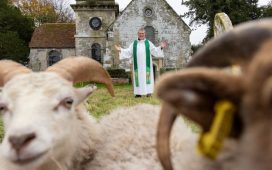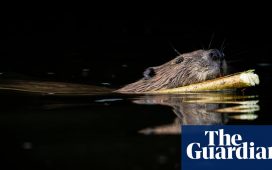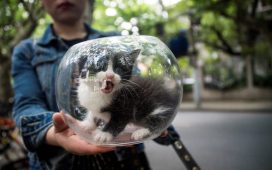As we climb the river wall, our steps laboured by the steep bank, the harsh wind suddenly hits us so fast it takes our breath away. The Butley river, with its saltmarsh and mud banks, sweeps ahead on my left. To my right, Boyton Marshes stretches into a bright white horizon. These are the famous Suffolk skies: wide and open.
Continuing on the Suffolk coast path, curlew, Cetti’s warblers and skylarks call. As I look ahead, redshanks busily scour the mud on the river edge. Oystercatchers fly past us, following the river, and a marsh harrier glides above one of the islands in the distance.
We sit just off the path, out of the wind, to drink hot tea from a flask. Signs of spring are everywhere: a dozen black-tailed godwits, each poised on one leg, heads tucked under a wing, their rusty red chests aflame with summer plumage. And flitting above the reeds, three swallows – the first I have seen this year.
As we resume our walk, a spoonbill flies overhead. These spectacular, once scarce birds can now be often spotted on the coasts of East Anglia during the summer months, and some breed elsewhere in the UK. It is a privilege to have them on my doorstep, and it’s amusing how a bird can look slightly comical yet graceful at the same time.
For me this is still trumped, however, by the two small birds that fly across our path in a flash of black, white, gold and amber. They disappear behind dense reeds and bramble. We wait, peeping through our scope, holding our breath – they are the unmistakable bearded tits. Harlequin-like markings on the male, soft buff-coloured faces on the female. Their sleek, streamlined bodies balance between the stems and they move quickly, making their distinctive soft “pinging” call as they work their way along the reeds, appearing for only seconds at a time before diving back into the foliage. Could they be looking to nest? Do they already have a nest? I hope so. So as to not disturb them, we creep away softly.
Later that day, I’m delighted to read that these charismatic birds are not actually a tit; they belong to their own family, the Panuridae. I reflect on this magical spot, and the splendour of knowing that every time I return, I will see something new.
